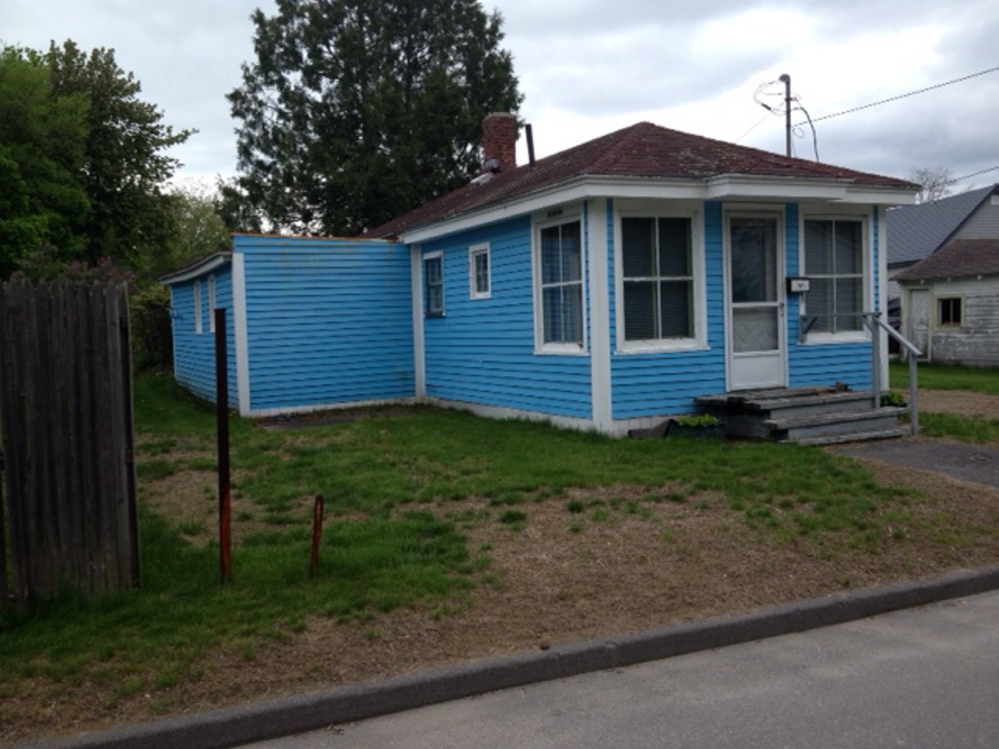WATERVILLE — A nonprofit organization that seeks to provide affordable homes to people with low to moderate incomes has received tax-exempt status, allowing it to receive tax-exempt donations of homes, land, money and other gifts.
The Waterville Community Land Trust received notice recently from the Internal Revenue Service that, as a public charity, it is exempt from federal income tax, which means donors get a tax deduction for gifts to the trust.
The land trust plans to buy or acquire houses and land, renovate them, and sell them at affordable prices. Homeowners may later sell the homes if they wish, but the trust will retain the land ownership and a substantial amount of any profits. The idea is to increase home ownership, improve neighborhoods, help prevent deterioration and restore the historic fabric of neighborhoods.
Nancy Williams, executive director of the multi million-dollar Lake George Land Conservancy in Bolton Landing, New York, initiated the idea for the Waterville Land Trust.
“Hoorah — we have much to do now to get to work,” Williams said Thursday after receiving word of the tax-exempt status. “This allows us to move forward to accomplish our goals of restoring homes for modest income people and supporting neighborhoods. We want to work with the city and residents to turn currently uninhabitable homes or declining neighborhoods back into great places for families.”
The trust decided last year to focus first on the city’s South End, where revitalization efforts by the South End Neighborhood Association have been ongoing in recent years. The effort will then spread to other parts of the city, officials said.
Mayor Karen Heck said Thursday that she is excited about the land trust idea.
“Clearly, one of the things we need to do in Waterville is have more people own their own homes and the land trust is a way for people to be able to do that in an affordable manner,” Heck said. “I’m thankful that people have the foresight to put this plan into action. They’re happening all over the country and I’m happy that the work is happening here in Waterville, too.”
Betty Palmer, executive director of the Mid-Maine Homeless Shelter, said Thursday that tax-exempt status for the trust is a “wonderful opportunity to flip properties in the city into affordable housing.”
“I think it’s good for the city too because it keeps them on the tax rolls,” Palmer said.
Palmer, who helps homeless people connect with resources they need to find jobs and homes, said the trust will help find them safe housing and “a way to re-settle.”
“In the old days, families often helped people get their first housing,” she said, adding that relatives would allow a young couple, for instance, to live in their vacated home if they paid rent. Now, that does not occur so much.
Palmer said the community also has to start a discussion about zoning, making sure existing homes are up to code and to focus on the need for small and even tiny houses, since many people do not need larger homes with many rooms.
“I feel like the land trust is one step closer to addressing community wide concerns for right-sized and affordable housing for everybody,” she said.
More than a year ago, Williams met to discuss the land trust with about 30 residents of the South End and other areas of the city, as well as with some city councilors and Planning Board members, business owners and legislators. They met in a house Williams bought in 2012 and is restoring — the Foster-Redington House — which on April 11 was entered on the National Register of Historic Places. The Queen Anne-style house was built by celebrated contractor Moses C. Foster in 1883 and later was home to his daughter and son-in-law, Frank Redington, a prominent businessman and former Waterville mayor.
The Land Trust, according to Williams, will be funded through grants, gifts, monetary donations and in-kind donations, such as labor. It is overseen by a board of directors made up in equal parts of people living in the South End, residents of Waterville and people whose qualifications benefit the board.
The trust also will seek grants to help develop public open space and create other opportunities for growth, such as providing space for startup businesses.
The trust had its sights set on a house and lot at 11 Clark St. in the South End as its first house to be renovated. The city had foreclosed on the property for nonpayment of taxes and trust officials said they hoped to return it to the tax rolls as an affordable home. But city councilors last week said that the city planned instead to tear down the house, as it was beyond saving, and offer the land to Habitat for Humanity. Habitat plans to build an affordable house on the lot next year. Williams said the trust will help recruit volunteers for the project.
City Manager Michael Roy said the single-family house will be torn down using money from the city’s undesignated fund.
Amy Calder — 861-9247 | acalder@centralmaine.com | Twitter: @AmyCalder17
Send questions/comments to the editors.




Success. Please wait for the page to reload. If the page does not reload within 5 seconds, please refresh the page.
Enter your email and password to access comments.
Hi, to comment on stories you must . This profile is in addition to your subscription and website login.
Already have a commenting profile? .
Invalid username/password.
Please check your email to confirm and complete your registration.
Only subscribers are eligible to post comments. Please subscribe or login first for digital access. Here’s why.
Use the form below to reset your password. When you've submitted your account email, we will send an email with a reset code.